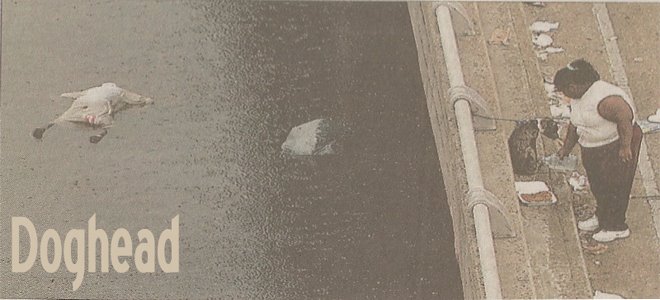
Given that chaps have been, and are, dedicating their time to cataloging all manner of records, trainers, tattoos, art prints, etc for the blogosphere, I thought I'd make a contribution with something that I hold a little closer to my own heart: bookywooks. Knowing me this will be updated once every 7 years, so don't hold your breath.
The first book I would like to share is If I Die in a Combat Zone by Tim O'Brien, purely because it's the last book I read. I last read If I die... about 5 years ago, when I was studying peace and conflict resolution at university. Reflecting back, I was rather disheartened with the course, and with my life in general, and think that my way of thinking tainted the reading experience. I disregarded it entirely back then as liberal toss, and remember getting into a little bit of a heated argument with Dave'o (no relation) over it. Long story shortened, I gave it another chance the other night and read the whole thing in about 6 hours.
If I Die in a Combat Zone is an autobiographical account of Tim O'Brien's tour of Vietnam. Before even going he was fairly liberal minded, and even did his best to get out of active service. What's refreshing about O'Brien's account is his emotional honesty (I say 'honesty' while appreciating that no work of writing can ever be truly honest, but here is not the place to dissect such an idea). This passage quite succinctly sums up O'Brien's account:
Men are killed, dead human beings are very heavy and awkward to carry, things smell different in Vietnam, soldiers are afraid and often brave, drill sergeants are boors, some men think the war is proper and just and others don't and most don't care. Is that the stuff for a morality lesson, even for a theme? Can the foot soldier teach anything important about war, merely for having been there? I think not. He can tell war stories.
And war stories are what you get. Poetically told, with at times stunning insight, but war stories are what this book contain, ranging from his frustrations in training, his self-sabotaging of going AWOL, through to his violent, bloody, and almost entirely useless tour of 'Nam. You can tell O'Brien is both left leaning, and against the war he's fighting in, but so is almost everyone fighting there, on all sides. It always seems to be a recurring theme in almost all Vietnam books I've read. Noone ever really seemed to know what they were there for. If I were recommending a book on Vietnam, I would suggest Dispatches by Michael Herr over any other, but this book taps into much the same moods and sentiments, and is certainly a useful companion piece with a different perspective.
Here's an excerpt in lieu of an MP3 or youtube clip. The following passage really stood out. It could well be a standalone piece in its own right, and in an abstract sense sums up a great deal of human struggle:
10: The Man at the Well
He was just an old man, an old Vietnamese farmer. His hair was white, and he was somewhere over seventy years, stooped and hunches from work in the paddies, his spine bent into a permanent, calcified arc. He was blind. His eyes were huge and empty, glistening like aluminium under the sun, cauterized and burnt out. But the old man got around.In March we came to his well. He stood and smiled while we used the water. He laughed when we laughed. To be ingratiating he said 'Good water for good GIs.' Whenever there was an occasion, he repeated the phrase.
Some children came to the well, and one of them, a little girl with black hair and hoops of steel through her ears, took the old fellow's hand, helping him about. The kids giggles at our naked bodies. A boy took a soldier's rifle from out the mud and wiped it and stacked it against the tree, and the old man smiled.Alpha Company decided to spend the day in the old man's village. We lounged inside his hut, and when re-supply brought down cold beer and food, we ate and wasted away the day. The kids administered back rubs, chopping and stretching and pushing our blood. They eyed out our C rations, and the old man helped when he could.
When the wind stopped and the flies became bothersome, we went to the well again. We showered and the old fellow helped, dipping into the well and yanking up buckets of water and sloshing it over our heads and backs and bellies. The kids watched him wash us. The day was as hot and peaceful as a day can be.
The blind old farmer was showering one of the men. A blustery and stupid soldier, blond hair and big belly, picked up a carton of milk and from fifteen feet away hurled it, for no reason, aiming at the old man and striking him flush in the face. The carton burst, milk spraying on the old man's temples and into his cataracts. He hunched forward, rocking precariously and searching for balance. He dropped his bucket, and his hands went to his eyes then dropped loosely to his thighs. His blind
gaze fixed straight ahead, at the stupid soldier's feet. His tongue moved a little, trying to get at the cut and tasting the blood and milk. No one moved to help. The kids were quiet. The old man's eyes did a funny trick, almost rolling out of his head, out of sight. He was motionless, and finally he smiled. He picked up the bucket and with the ruins of goodness spread over him, perfect gore, he dunked into the well and came up with water, and he showered a soldier. The kids watched.

No comments:
Post a Comment